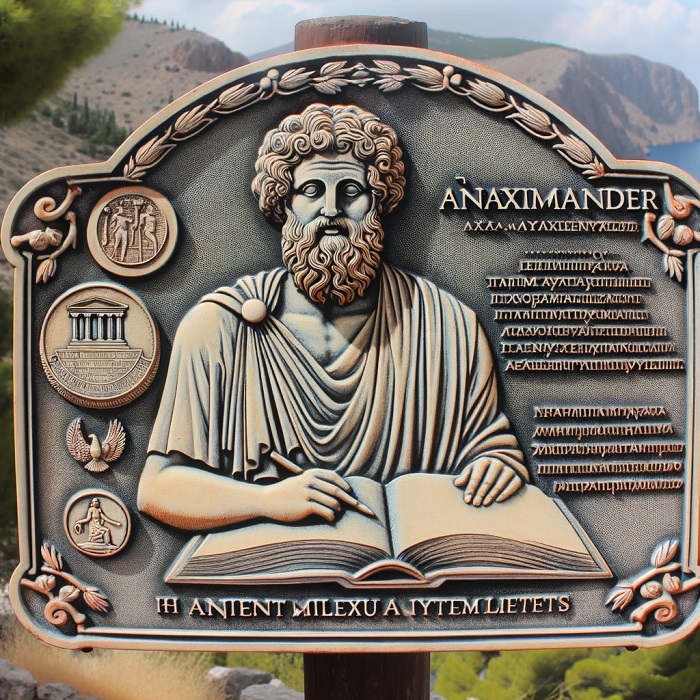Anaximander, a pre-Socratic philosopher from ancient Greece, explored the universe’s origins, introduced the concept of the “Boundless,” and pioneered early scientific thought.

Anaximander (c. 610 – c. 546 BC)
Early Life and Background:
Anaximander was born in the city of Miletus, located in present-day Turkey, around 610 BC. He was a pupil of Thales, another renowned philosopher, and is often regarded as the second philosopher of the Milesian school. Little is known about his personal life, but he lived during a time of great intellectual and cultural expansion in Greece.
Philosophical Contributions:
Anaximander’s philosophy was marked by his inquiries into the nature of existence and the origins of the universe. He is credited with introducing the concept of the “Boundless” (or “Apeiron” in Greek) as the primal source of all existence. For Anaximander, everything in the world emerged from this indefinite and infinite substance and would eventually return to it. This idea was revolutionary because it shifted the focus from mythological explanations to a more abstract and rational understanding of the cosmos.
He also proposed that the Earth was a cylindrical shape, suspended freely in space, and did not require any support. This was a significant departure from earlier beliefs that the Earth was flat and supported on the back of a giant creature.
Scientific Contributions:
In addition to his philosophical insights, Anaximander made notable contributions to the fields of geography, astronomy, and biology. He is often credited with creating one of the earliest known maps of the world, which reflected the Greeks’ expanding knowledge of their surroundings.
In astronomy, he postulated the existence of celestial bodies beyond the stars and introduced the idea of the equinox. He also tried to explain natural phenomena without resorting to mythology, making him one of the early pioneers of scientific thought.
Furthermore, Anaximander proposed a theory of evolution, suggesting that life originated in the sea and that animals came to live on land over time through a process of adaptation and change.
Later Life and Legacy:
Anaximander’s exact date of death is uncertain, but he is believed to have passed away around 546 BC. Although many of his writings have been lost over time, his ideas have been preserved through the works of later philosophers and historians.
His legacy lies in his pioneering approach to philosophy and science, laying the groundwork for future thinkers in both fields. His emphasis on rationality and observation set a precedent for the methodologies that would come to define Western science.